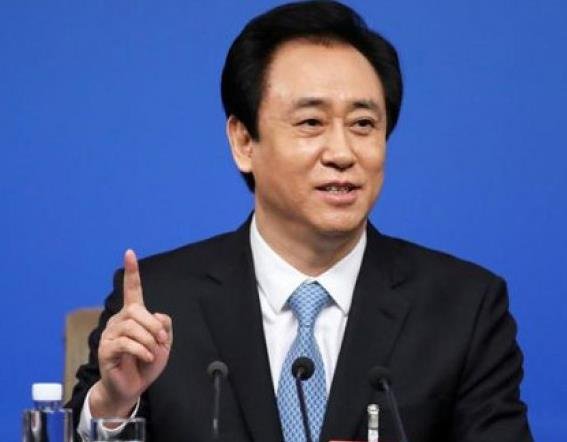The troubled property developer’s stock surged as much as 42% on Tuesday, despite the investigation into its chairman.
China Evergrande Group, the world’s most indebted property developer, saw its shares soar as much as 42% on Tuesday, as it resumed trading in Hong Kong after a halt last week. The stock surge came despite the news that its billionaire founder and chairman, Hui Ka Yan, was under police control on suspicion of committing undisclosed crimes.
Evergrande faces a debt crisis that has rattled global markets.
Evergrande has been struggling to repay its massive debt of more than $300 billion, which has sparked fears of contagion in China’s property sector and beyond. The company defaulted on its offshore debt obligations in late 2021, and scrapped key creditor meetings last month. It also said it had to revisit a plan to restructure its offshore debt, which requires approval from creditors by the end of October.

The company’s debt crisis has also affected its ability to complete unfinished projects, leaving millions of homebuyers in limbo. Some of them have staged protests across China, demanding refunds or delivery of their homes. Evergrande has also faced lawsuits from suppliers, contractors and investors, who are seeking to recover their money.
The investigation into Hui raises questions about his role in the company’s restructuring.
Hui, who founded Evergrande in 1996 and turned it into one of China’s largest developers, was notified by authorities last week that he was subject to “mandatory measures” relating to “suspicion of illegal crimes”, according to a company statement. The statement did not elaborate on what the measures entailed or what crimes he was suspected of committing.
According to a report by the Wall Street Journal, Chinese authorities are investigating whether Hui attempted to transfer assets offshore while the company was facing financial difficulties. The report also said that Hui had been barred from leaving mainland China since late 2021.
The investigation into Hui raises questions about his role in the company’s restructuring plan, and whether he will be able to retain control over the company. Hui owns about 77% of Evergrande’s shares, and has been known for his micromanagement style and tight grip on the company’s operations.
Evergrande says its operations are normal, but analysts remain skeptical.
Evergrande requested trading resumption from the Hong Kong stock exchange on Monday, saying there was no other pertinent information that needed to be disclosed. The company also said that its board was “of the view that the operations of the company are normal”.
However, some analysts remain skeptical about the company’s prospects, and warn that the risks of liquidation are increasing. Evergrande is scheduled to have a hearing on a winding-up petition on October 30, which could potentially force it into insolvency.
“Evergrande shares are really volatile and always full of surprise moves,” said Willer Chen, senior research analyst at Forsyth Barr Asia Ltd. “I’m not sure who will buy it up under this situation.”
